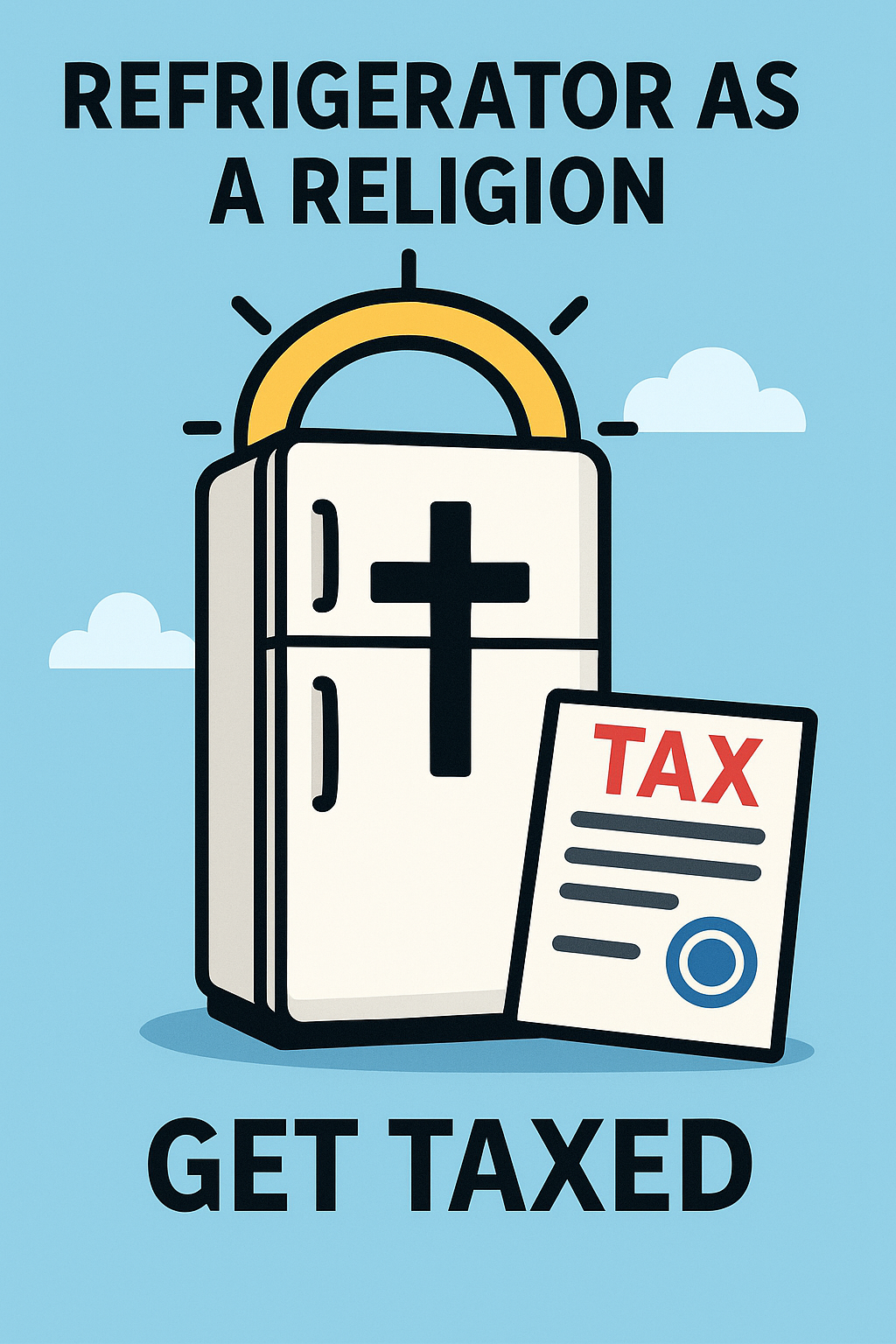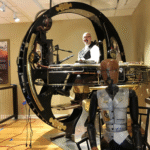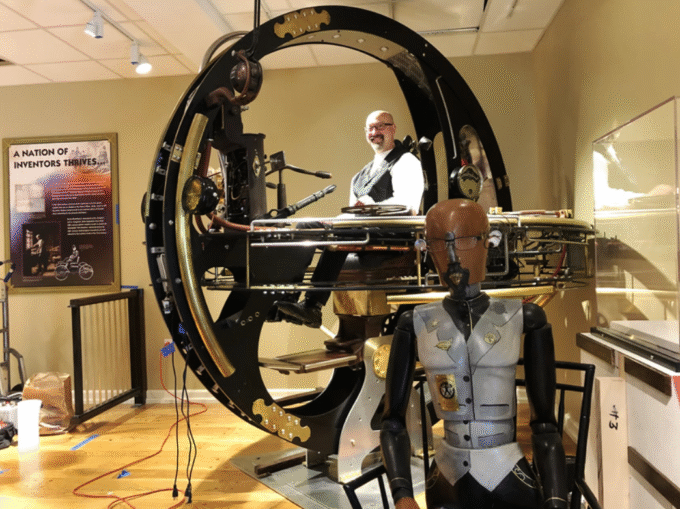The practice of tax exemption for religious organizations has become an open argument and a controversy on the part of both religious leaders and government.
Table of Contents
The resurgence of interest in tax exemption touches on real legal principles surrounding religious freedom and the limits of government recognition.
The idea of declaring an unconventional object as a religion as a means for a tax break is a challenging thought that touches on the intersection of freedom of religion, tax law, and legal definitions.
In this write-up, you will discover the answer to whether you can declare your refrigerator a religion and get a tax break and international regulatory guidelines
Religion and tax breaks
What is a religion?
According to the Collins Dictionary, religion is a ” belief in a god or gods and the activities that are connected with this belief, such as praying or worshipping in a building such as a church or temple.” Religions typically involve belief in a higher power or supernatural forces, and the use of sacred symbols and myths.
According to the law, religion is a broad, flexible concept encompassing sincere beliefs and practices relating to the sacred or transcendent.
A tax break is a benefit from the government that reduces the tax obligation of an individual or an organisation. They are made to encourage certain behaviours, support specific groups, or stimulate the economy. Tax breaks come in many forms, including tax deductions, tax credits, tax exemptions, and income exclusions.
Religious organisations are mostly granted special tax breaks due to their recognised role in society and some constitutional protections. If a religion complies with legal requirements regarding its activities and organisational structure, it benefits from exemptions from income tax, eligibility to receive tax-deductible donations, and other state and local tax exemptions.
Global perspective on tax-exempt status for religious organizations
Tax-exempt status for religious organisations varies across countries due to diverse legal, cultural, religious, and political frameworks.
United States
Religious bodies are unique organisation under the United States law. Under Section 501(c)(3) of the Internal Revenue Code (IRC), religious organizations that have Employer Identification Number (EIN) are automatically granted federal tax-exemption status. Obtaining a tax exemption status is not always straight forward. Religious organisation must meet a range of criteria to ensure they comply with federal law.

Canada: Religious organisations can be registered as charities under the Income Tax Act, administered by the Canada Revenue Agency (CRA). Therefore, registered organisations enjoy income tax exemptions and the ability to issue tax donations.
United Kingdom: The laws of the United Kingdom also permit religious organisations to register as charities with the Charity Commission.
European Union: The same approach applies to many EU countries, including Germany, France, and Italy. The global trend is almost the same for religious tax-exempt status.
What determines a religious organisation?
Religious organizations globally are associations of individuals united by shared religious beliefs and practices and recognized by law as a legal entity.
The Council of Europe’s Law on Freedom of Conscience and Religious Organizations says a religious organization must:
- Have a minimum number of 50 members
- Not contract fundamental legal provisions
- Have a doctrine that forms part of internally recognized religious communities
- Be based on historically holy scriptures
- Be free from materialism and oriented toward purely spiritual goals
These are some countries and their specific legal forms and requirements.
United States: Religious organisations are registered as nonprofits for tax purpose. The protection has the IRS and courts adopt a flexible approach to defining religion.
Spain: Provides various legal personalities for religious communities
Armenia: Based on recognised scriptures and spiritual goals
Estonia: Recognised under civil laws
Laws and religion
Tax-exempt status for religious organisations varies across countries due to diverse legal, cultural, religious, and political frameworks. Courts balance the need to respect diverse beliefs with preventing abuse of tax-exempt status.
In 1965, the United States Supreme Court extended the definition of religion to include sincerely held beliefs that function as a religion in an individual’s life, even if they do not involve a traditional deity.
However, the legal system has also established boundaries. The court only confirmed Scientology’s tax-exempt status after confirming its religious nature in Founding Church of Scientology v. United States (1970), highlighting the need for the organization to exhibit a sincere religious purpose.
Even if you are able to make your refrigerator a religion, getting tax-exemption status is not automatic. For an organization to receive tax exemption requirements, it must meet certain requirements, including
- Be organized and operated exclusively for religious (or other exempt) purposes.
- Not distribute earnings to private individuals
- Avoid substantial lobbying or political activity.
- File Form 1023 with the IRS (unless it qualifies as a church, which may self-declare).
Conclusion
In many countries across the globe, what determines a religious organisation often involves a combination of legal, social, and doctrinal criteria. These criteria vary by country; however, they share common elements based on international human rights standards and law.
In the United States, the First Amendment protects a broad range of beliefs, but declaring your refrigerator a religion and using it to secure a tax break is unlikely to succeed under U.S. law.
The Internal Revenue Service and courts require more than quirky devotion—they demand structure, sincerity, and compliance with legal standards. If you are serious about founding a religion, you’ll need more than a cold box and a clever name.
Attempting to exploit tax-exemption status fraudulently can lead to serious legal implications. The law enforcement authorities can impose penalties, back taxes and interest for misrepresentation.
FAQs
Can your refrigerator be a religion?
According to the law, a refrigerator cannot be considered a religion. A refrigerator can be involved in religious life practically or symbolically, but it cannot be a religion.
What counts as a religion?
International regulations consider various criteria for religious organizations, including a congregation, a recognized creed and form of worship, regular religious services, and an established place of worship.
Can you just create a religion?
Yes. Unconventional religions are recognized in the United States.
Can you declare your home as a place of worship?
Technically, you can declare your home as a place of worship, but for tax exemption purposes, it must be owned by a recognized religious organization.
















